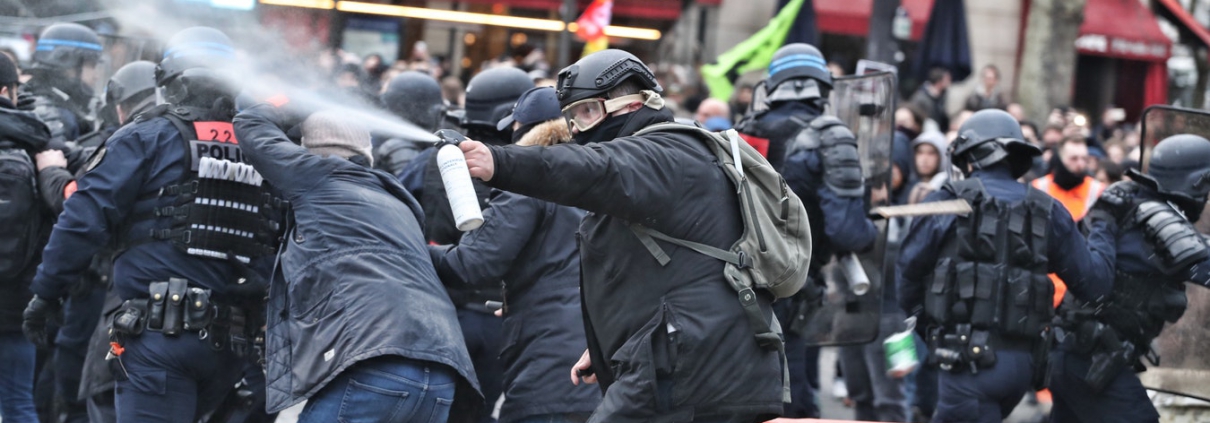Riots: A wake up call for the black community
I shuddered as I watched the freakish looting on London’s streets. Fear has spread to almost every corner of this nation as rioters attacked the focal points of our communities: our high roads and commercial centres where people socialise and do business.
As a young Black British woman I am enraged to see a considerable number of black and mixed race youth involved in this mass, violent shop-up.
The Turkish community had the capacity to fend off rioters because they had positive community values, but the Black British community had little hope of self-defence, as a disproportionate amount of men (in proportion to the majority population and as a racial group alone) were perpetrators or already behind bars.
I would like to say, this is an unfortunate comeuppance for a community where there is virtually no male authority. These young men and women have experienced disorder in their homes and are not pressurised from within the community to do better than their parents, to leave the cycle of dependency on welfare provision and enjoy a professional career. The street culture many young black and mixed race kids appropriate, advocates short-term glory respect on the street, which ultimately boils down to an intimidating street presence; scraps over drug domains; internecine violence and aborts the prospect of long term success in life.
Some community leaders have hailed liberal pro-child policy as a cause of disorder amongst the rioters.
My parents generation, born in the 1960s need to understand they cannot roll the clock back to an imaginary never-never-land where corporal punishment was a remedy to all bad behaviour. The past, in this regard, is far more disturbing. Many men from the Windrush Generation (the first wave of Caribbean migrants to Britain 1948-1960s) left their wives, partners and children in the Caribbean behind, to enjoy new-found ‘freedom’ and exotic status in the UK; they found girlfriends, remarried, spawned new offspring with various women and unfortunately helped establish a pattern of familial brokenness to their grandchildren by walking away.
The answer from a lot of black clergy has been to pander to my parents generation we need to be able to discipline our kids i.e. we need to be free to punish them physically. I am from that generation and I bet you your bottom dollar the rioting young children have been smacked. Smacking was used indiscriminately by the Windrush Generation parents on their children (my parents’ generation) who often used it to avoid healthy discussion of awkward issues.
A certain level of education or training is needed to be integrated into the Knowledge Economy. Certainly there are issues of tacit racism in schools and swift recourse to exclusion. But difficulties do not entirely excuse parental responsibility to push one’s children. Indeed African-Americans faced more explicit discrimination in the United States, yet they fought back and overcame certain hurdles by fighting low expectations. Black parents have to recognise we are living in a country where there are considerable opportunities, especially in comparison to the Caribbean or Africa where primary and secondary education are not free. If black parents want their input to be valued they need to incorporate broader parenting styles, faithfully attend parent-teacher meetings, which are poorly attended in inner city schools; become school governors, and local councillors and actively encourage their children to enter the professions.
On another note, youth initiatives in the black community are sidelined. Churches in the black community have invaluable access to young black NEETs (not in education, employment or training), however many have misplaced priorities. Black Majority Churches have a tendency to spend extortionate amounts on rent for halls, stadiums and flights for international preachers for religious conventions that can last up to seven days, when events and initiatives for young people are strapped for cash and youth pastors are left to make do.
An extensive auto-critique of certain phenomena associated with the black community is needed; this is why so many black people screamed ‘racist’ at David Starkey’s remarks. If there is no introspective self-analysis, outside forces will step in and examine our community which will inevitably hurt more and are likely to be specious. With regards to Starkey’s critique of what some call ‘Jafaican’: there has been a weird change in young people’s vernacular. My grandparents generation from the Caribbean spoke better English than most street-speakers. Although they had an accent, they used Standard English and were taught that patois was only for home use. Unfortunately many young people cannot differentiate between the two.
To move forward community leaders could gain insight from the experience of young people from the black community who are educated or well trained. For example, I attended a ‘good state school’ yet I was bullied by the black girls in ‘the black group’ for being bookish and not hanging out with them; this happened amongst black girls in every year group in a multiracial school. Some of my bullies became single mothers and didn’t attend university; they are not fulfilling their potential.
In other words, my message to the Black community is to wake up and act like a community. We must address our lack of progress in recent years in order to avoid the loss of another generation to crime and hopelessness.
Written by Zaneta Denny





